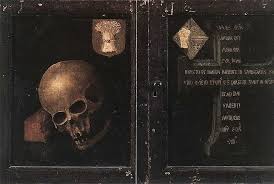
I’ve been poking around Robert Bly’s bodaciously-big, newly-released Collected Poems, and enjoying his versatility. For instance, poems from his 1975 collection Morning Glory are descriptive gems that would have served as comfort food to Henry David Thoreau out in his cabin by the lake.
Of course, in our politically-fraught times, nature poems like these are frowned upon as self-indulgent (an irony I’d go on about if it weren’t another post entirely), so it’s a treat to find and savor them secretly. Examples:
The Porcupine in the Wind
for Galway Kinnell
by Robert Bly
In half-light, I make out a shape near a tree trunk—a half-grown porcupine! He hurries clumsily—like a steam shovel—up the tree. Six feet up, he decides he has gone far enough and he waits, occasionally looking at me over a half-turned shoulder. Stepping up, I look into his eye, which is black, with little spontaneity, above an expressionless nose. He knows little about climbing, and his claws keep slipping on the gray poplar bark. His body apparently feels no excitement anyway to be climbing higher, toward the immaterial sky: he can’t remember any stories he’s heard.
Sun already down. The white needle-fur stands out, something pre-Roman, next to the elegant bark. As I listen I become aware of a third thing, still older. It is the wind through miles of leafless forest.
Nota Bene: The sweetness in this piece kicks in when we hit the last line of the first paragraph: “he can’t remember any stories he’s heard.” A rather perfect way to depict an animal that has paused mid-climb, no? Then the second paragraph! That entry of a third, unexpected party “still older… the wind through miles of leafless forest.” I hope ole Galway enjoyed that something “still older” as much as I do. The wind. If you really listen to it, I mean.
A Caterpillar
by Robert Bly
Lifting my coffee cup, I notice a caterpillar crawling over my sheet of ten-cent airmail stamps. The head is black as a Chinese box. Nine soft accordions follow it around, with a waving motion, like a flabby mountain. Skinny brushes used to clean pop bottles rise from some of its shoulders. As I pick up the sheet of stamps, the caterpillar advances around and around the edge, and I see his feet: three pairs under the head, four sponge-like pairs under the middle body, and two final pairs at the tip, pink as a puppy’s hind legs. As he walks, he rears, six pairs of legs off the stamp, waving around in the air! One of the sponge pairs, and the last two tail pairs, the reserve feet, hold on anxiously. It is the first of September. The leaf shadows are less ferocious on the notebook cover. A man accepts his failures more easily—or perhaps summer’s insanity is gone? A man notices ordinary earth, scorned in July, with affection, as he settles down to his daily work, to use stamps.
Nota Bene: The simile takes me right out of the gate: “The head is black as a Chinese box.” Man, when a poem draws a parallel you’d never dream of, one that’s just right, you stand and applaud!
Opening the Door of a Barn I Thought Was Empty on New Year’s Eve
by Robert Bly
I walk over the fields made white with new snow and then open the double-barn doors: Sounds of breathing! Thirty steers are wandering about, the old barn partitions gone. Creatures heavy, shaggy, slowly moving in the dying light. Bodies with no St. Teresa look straight at me. The floor is cheerful with clean straw. Snow gleams in the feeding lot outside. The bony legs of the steers look frail in the pale light from the snow like uncles visiting from the city.
Dust and cobwebs thicken the windowpanes. The dog who came with me stands up on his hind legs to look over the wooden gate. Large shoulders watch him, and he suddenly puts his legs down, frightened. After a while, he puts them up again. A steer’s head swings to look at the dog; it stares for three or four minutes unable to get a clear picture from the instinct reservoir—then bolts.
But the steers’ enemies are asleep; the whole barn is asleep. The steers do not demand eternal life; they ask only to eat the crushed corn and the hay tasty with dust, and sometimes to feel an affection run down along the heavy nerves. Each steer has a lamp lit inside fluttering on a windy night.
Nota Bene: There’s something to that last paragraph, to the simplicity of the steer, as if they know something we don’t. They do not “demand eternal life” and find happiness in “crushed corn and the hay tasty with dust.” What’s more, they sometimes “feel an affection run down along the heavy nerves” as if such feelings are a gift to all animals, not just humans. But for my money, it’s the last line that resonates: the fact that each steer “has a lamp lit insider fluttering on a windy night.” Buddhist steer, anyone? And a life lesson in a beast made sophisticated by its simplicity?
Yes. I’ll have some of what Bly’s having.




